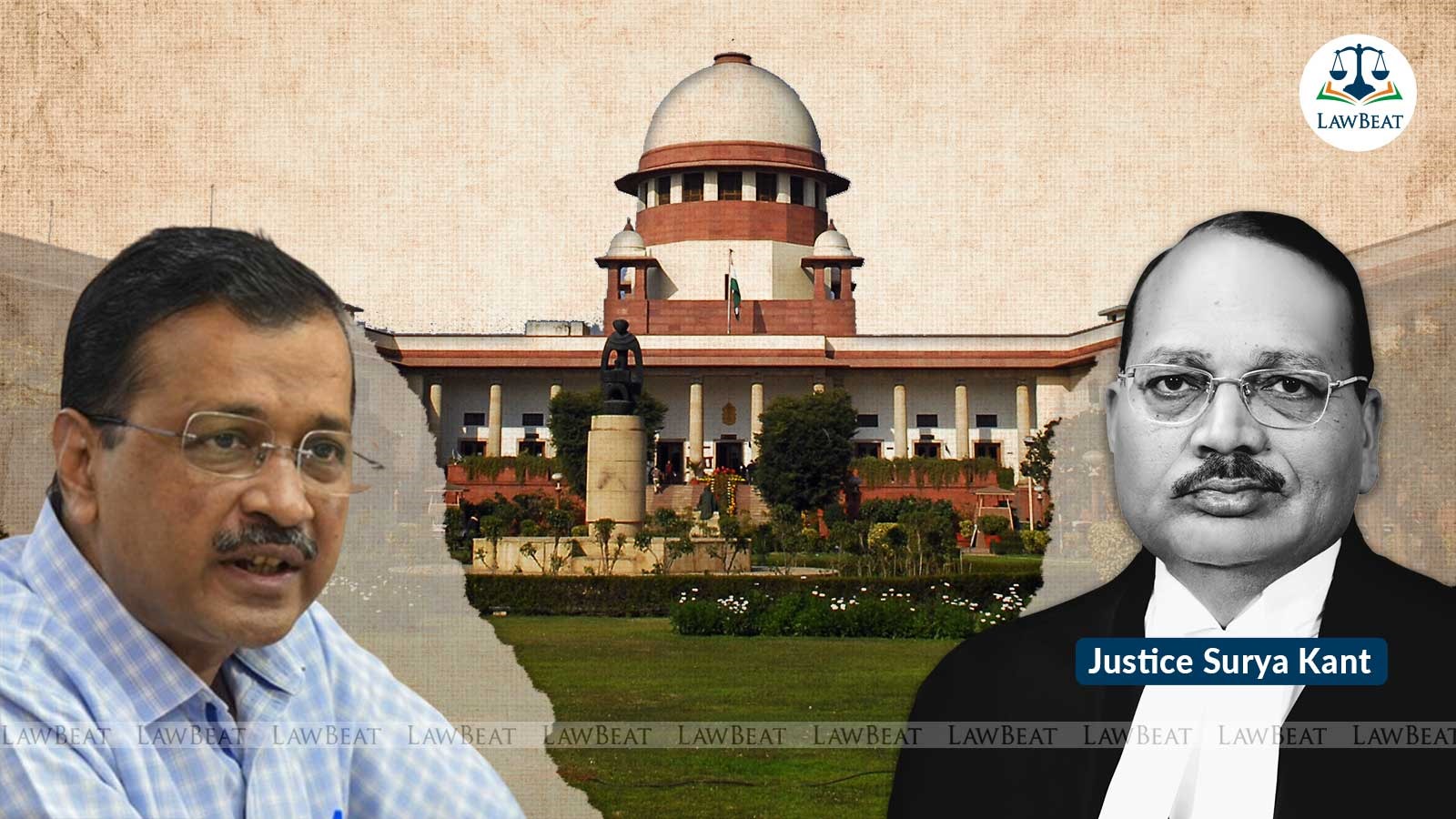Justice Surya Kant finds no 'procedural infirmity' in CBI's arrest of Arvind Kejriwal

Supreme Court of India yesterday granted bail to Kejriwal in the case registered by Central Bureau of Investigation relating to the liquor policy scam
Justice Surya Kant of the Supreme Court has found no procedural infirmity with the arrest of Delhi Chief Minister Arvind Kejriwal by the Central Bureau of Investigation in relation to the liquor policy scam.
"Having considered the CBI's compliance with Section 41A of the CrPC and the inapplicability of Section 41(1)(b)(ii) of the CrPC, we are thus of the view that the Appellant’s arrest does not suffer with any procedural infirmity. Consequently, the plea regarding non-compliance of these provisions, merits rejection.", Justice Kant has held.
The Supreme Court judge has noted that since Kejriwal was already in judicial custody at the relevant time in the ED case, the CBI filed an application before the Trial Court under Section 41A of the CrPC, inter alia seeking to interrogate and examine him. In this regard, Justice Kant observed, "It is to be remembered that the Court is, in a way, the guardian of an undertrial, while he is in judicial custody. That being so, there could possibly be no other way to secure the Appellant’s physical presence for the purpose of further investigation, except to seek prior permission of the Trial Court for his interrogation".
It has further been observed that Trial Court’s approval of the CBI’s application to interrogate Kejriwal should be viewed as satisfying the essential requirements of Section 41A, as the issuance of a formal notice through the jail authorities would have had an adverse impact on his rights.
Also, noting that there is no impediment in terms of arresting a person already in custody for the purposes of investigation, whether for the same offence or for an altogether different offence, Justice Kant has held that Kejriwal's arrest by the CBI was entirely permissible.
While the Supreme Court has granted bail to Kejriwal, Justice Ujjal Bhuyan, who was also part of the bench, has viewed the CBI's arrest of Kejriwal to be done with a motive to frustrate the bail granted to him in the ED case.
As per Justice Bhuyan, CBI did not feel the need and necessity to arrest Kejriwal from August 17, 2022, when the CBI case was registered, till June 26, 2024 i.e. for over 22 months.
The top court judge has further held CBI to be definitely wrong in saying that because Kejriwal was evasive in his reply, and because he was not cooperating with the investigation, therefore, he was rightly arrested and now should be continued in detention.
A week back, the Supreme Court had reserved its verdict in the petition filed by Delhi Chief Minister Arvind Kejriwal, who has challenged the Delhi High Court's dismissal of his petition against his arrest by the CBI in the liquor policy scam case.
Recently, the Chief Minister was granted interim bail in the Delhi liquor policy scam in the case by Enforcement Directorate noting that he had been incarcerated for over 90 days. The court said, "He is the Chief Minister of a state and the elected leader. Considering his right to life and liberty and the fact that he has been in jail for over 90 days, we are of the view that Kejriwal is entitled to be released on interim bail”.
The Delhi CM was arrested on March 21st this year by the ED and obtained Supreme Court bail for campaigning but faced challenges in subsequent appeals. After obtaining interim bail in the ED case on July 12, he continues to be in custody on account of his arrest by CBI.
The Rouse Avenue Court had authorized the CBI to question Chief Minister Arvind Kejriwal regarding the defunct liquor excise policy.
Case Title: Arvind Kejriwal vs. Central Bureau of Investigation
